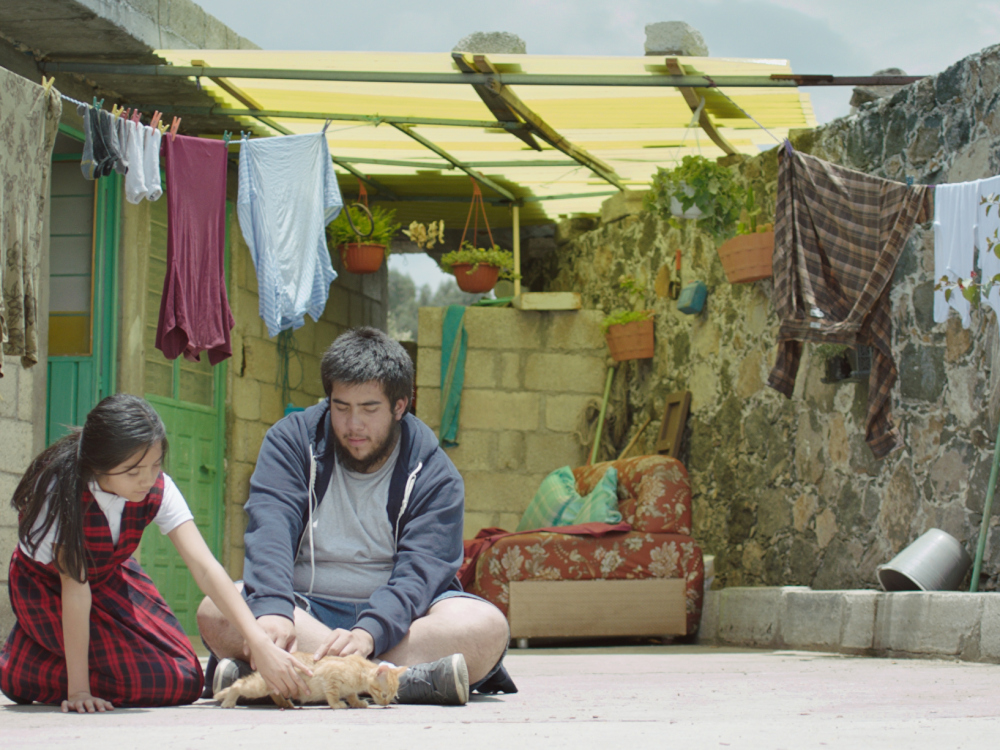By David Pountain
Directed by Matias Meyer
Montreal Nouveau Cinema Film Festival review
The developmentally stunted title character of Yo is a volatile individual prone to loud emotional outbursts that the audience is almost never a direct witness to. For instance, the event of Yo attacking his mother is merely recalled in the character’s recurring voiceover narration, a device that consistently suggests more insight and awareness than his outward manner. It is this unobtrusive distance from the character’s more intense episodes that separates the film from your standard variety of fiction that centres on a mentally disordered protagonist who interprets reality through a unique, muddled perspective. It is also what will likely render Yo a somewhat divisive work but those who find ambiguity delivered via meditative pacing to be a source of hypnotic intrigue rather than frustration will find their needs met in this dark, unconventional drama.
The Yo that we see on screen is an awkwardly large, quiet young man whose mental adolescence is literalised in his sincere belief that he is only fifteen years old and whose boxed-in, solitary existence is literalised as the storage box that he lives in next to his mother’s restaurant. Yo’s affection towards his mother is harshly unreciprocated, with her preferring to keep a distrustful distance while sleeping with a mean-spirited lover who thinks even less of Yo than she does. Often seen in his own world, engaging in strange and repetitive habits such as spinning coins on the floor, Yo is a figure of derision who earns his keep doing simple menial tasks, be these giving massages to his mother or killing chickens for the restaurant.

Yo’s first substantial interaction with another person is with the 11-year-old Elena. It’s an early step in the character’s journey out into the real world but, more unnervingly, Yo quickly develops an attraction to the girl informed by his sexual inexperience and immaturity, though he knows better than to follow through on these feelings (as far as we see), with the two of them remaining strictly friends right up until their abrupt separation. After his job working for the restaurant is made obsolete by a machine, Yo gets another, less family-based job where he makes new, slightly exploitative companions and further explores his sexuality.
Matias Meyer directs the proceedings with economical skill. The visuals are crisp and colourful and the camera remains static for enough of the duration that its every movement carries a sense of purpose. Just what that purpose is may not always be clear – and, more widely, the picture may be too restrained and uncommunicative for its own good – but on a visceral level the overall, intentionally incomplete portrait is intriguingly uncomfortable and offers its own form of sympathy towards its reticent central character. When a man’s connection with our own world is so confused and uncertain, perhaps the most honest depiction of his plight is one expressed through the same murky pane of glass through which he sees us.
Recommended Viewing on FilmDoo:
(UK & Ireland only)









